From Desert Rose to Narco Princess, the life of Asma al-Assad
Asma al-Assad’s investment banking and computer science skills came in handy keeping Syria and her greedy dictator family afloat by running a lucrative narcotics trade.
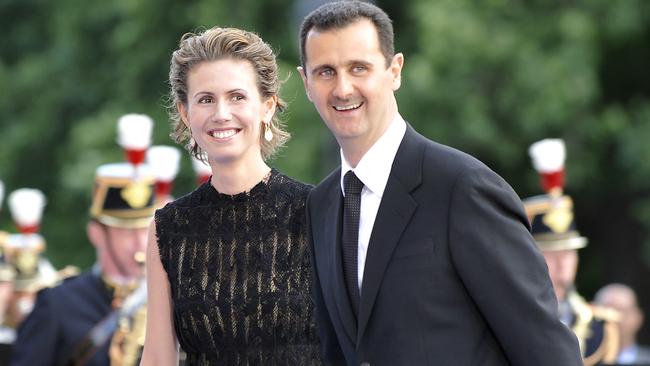
Asma al-Assad speaks with a clipped British accent and was lauded the “Rose of the Desert” in a controversial, highly complimentary 2012 magazine article, but in the dozen years since has descended into “The First Lady of Hell”, controlling foreign aid into Syria, turning the country into a “narco-state” and showing no signs of being unsettled by her husband’s brutality in quashing dissent and murdering opponents.
The fleeing of the Assad family to Moscow after the dramatic downfall of the despicable Syrian regime poses a problem of sorts for Britain.
Because the former first lady — the glamorous educated woman who was to have honed the awkward edges off her geeky, shy-speaking husband — was born in west London.
Asma has a British passport, having been born and raised in Ealing by her Harley Street cardiologist father Fawaz Akhras and Syrian diplomat mother, Sahar, originally from Homs.
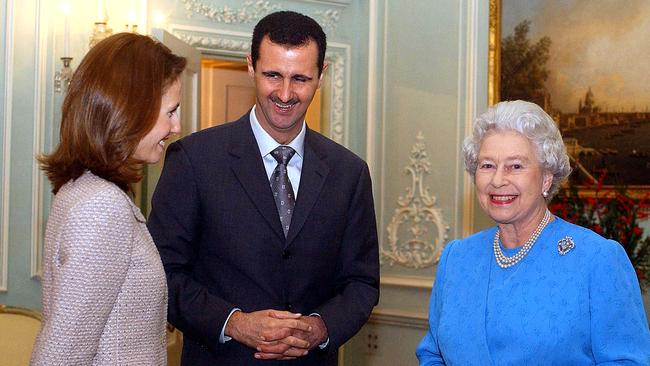
Throughout the Arab Spring, which descended into both a civil and proxy war, Asma strongly supported Bashar’s iron rule. This smart and modern woman who didn’t wear a veil and professed to want to improve the lot of women and children was ideally placed to have helped westernise Syria. Yet she has done nothing of the sort.
Like her husband, Asma has revelled in a life of obscene luxury and unfettered power throughout the past 24 years.
The veneer of being the British girl-next-door faded very quickly as she became inextricably linked to her husband’s calls to eradicate opposition “terrorists” at the very start of the domestic conflict when the regime fired upon unarmed protesters.
All the while her expensive shoe and bag collection grew, only matched by the designer clothing and numerous palaces.
Then, after the fragile peace pact in 2020, the Assads fiercely enriched themselves further by transforming the ailing economy of the country into a multibillion-dollar illegal drugs manufacturer.

There have been international investigations linking Asma directly to Syria’s gigantic Captagon drug trade, flooding Saudia Arabia, Lebanon and Jordan with millions of pills smuggled across borders by women and children, and also by drones.
The Assads weren’t simply turning a blind eye to the trade, they were the drugs cartel, Joel Rayburn, the former US special envoy for Syria says.
The trade was raking in as much as $US8bn a year, analysts have estimated. Der Spiegel reported that in an Essen court, documents and intercepted phone calls showed the Assad army’s Fourth Division, controlled by Assad’s brother, was transporting the drugs to the country’s ports; collecting money for export permits while the Assads also operated their own drug factories in a mafia-style operation.
Charles Lister, the founder of SyriaWeekly.com said this year that Asma had also skimmed off 20 to 50 per cent of every dollar the UN sent in aid to Damascus. She also used food aid as a currency to extract loyalty from her associates.
Three years ago, London’s Metropolitan Police opened an investigation into whether terrorism charges could be levelled at Asma for inciting, aiding and encouraging war crimes by Syrian government forces, including using chemical weapons and subjecting citizens to torture and sexual violence.
After an initial flurry of publicity, the police scrutiny appeared to abate and no charges eventuated. But now that the Assads have sought asylum in Russia, and if further evidence emerges from any files not shredded in their hasty exit, Asma could find it difficult to fly back to Heathrow.
Earlier this year Asma announced she had leukaemia, some five years after battling breast cancer, and issued a solemn video describing how hard it was to be away from the Syrian public while she had treatment.
Humble beginnings
Asma would not have foreseen such a life back in 1994 when she was studying computer science and met the young eye doctor, Bashar al-Assad, who was a family friend and furthering his training in London.
As a Sunni Muslim she wasn’t from the Assad’s Alawite sect, Arabic was her second language and she then began working as an investment banker: three reasons for the more conservative Assad family to treat her warily.
But by 2000, Asma reconnected with Bashar while on holiday in Damascus. That year was significant, for Bashar’s father died, meaning Bashar was now president. Asma, then 25, and Bashar, ten years older, married soon after.
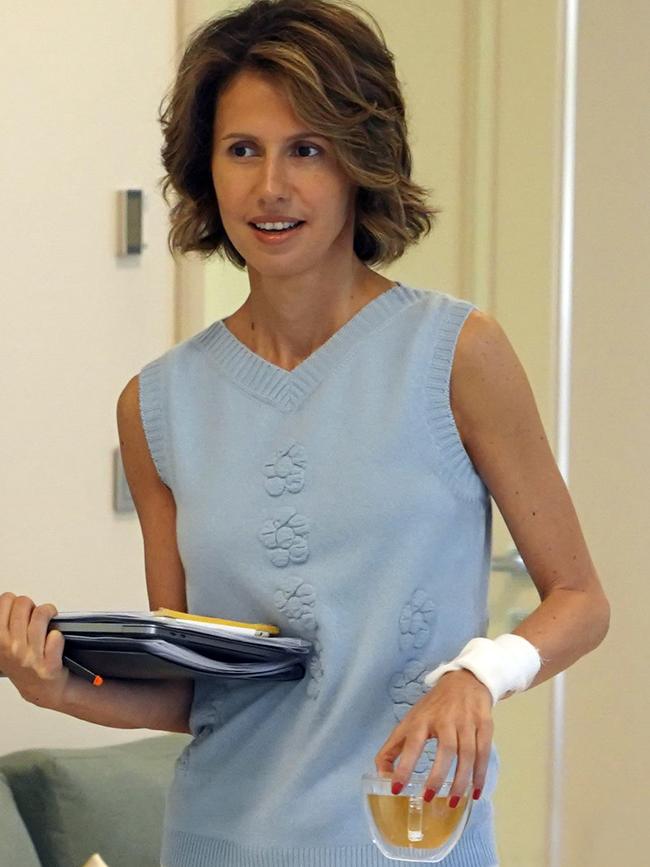
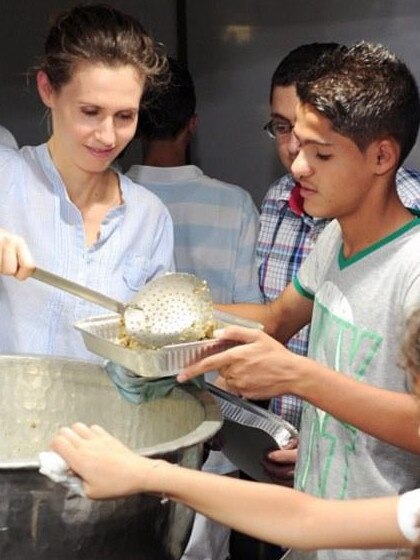
Asma reportedly ran the family – the couple has two sons and a daughter – with a steely determination which became even more intense during the civil war.
When her mother-in-law died in 2016 Asma assumed the role of family matriarch. She became an even more feared overlord of the regime, demanding loyalty from an ever shrinking cohort of business allies.
In 2016 she gave an interview to Russian television saying “Yes, I was offered the opportunity to leave Syria, or rather, to run from Syria. These offers included guarantees of safety and protection for my children and even financial security. It doesn’t take a genius to know what these people were really after. It was a deliberate attempt to shatter peoples’ confidence in their president.”
It doesn’t take a genius to realise that Asma’s standard of living and power play are all but over, as she and her family turn to the Kremlin to secure their safety.
Whether Asma ever wants to return to Britain is uncertain. Her parents’ terrace home in Ealing is neat and tidy, but neighbours say the family hasn’t been seen for a while.


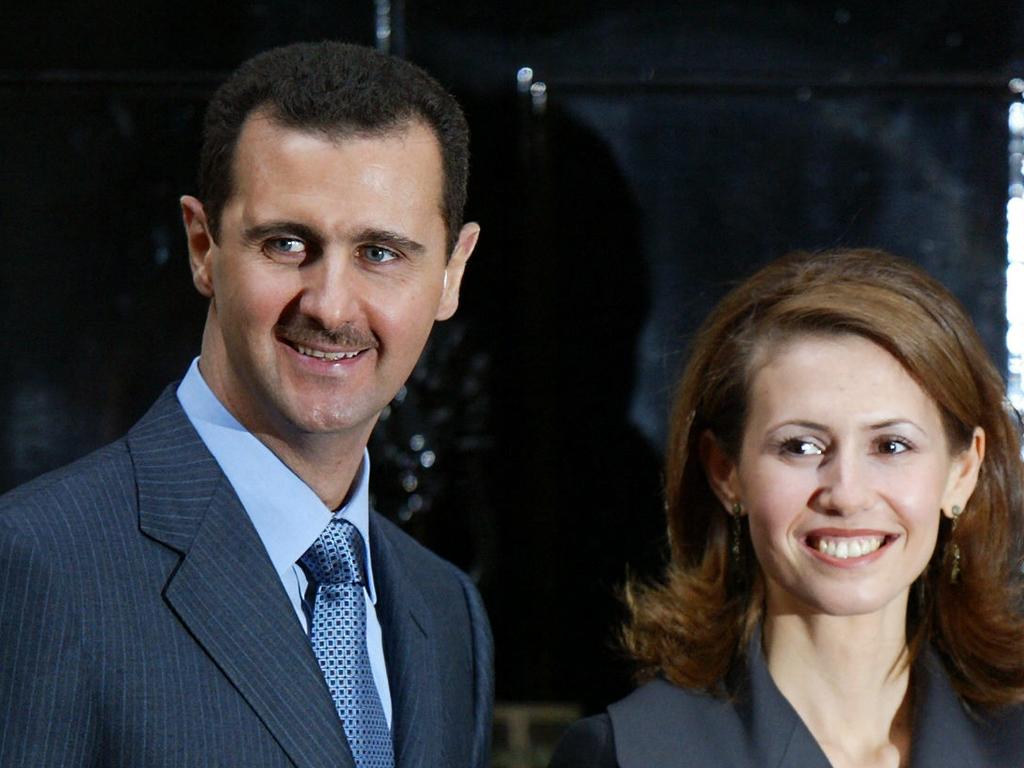





To join the conversation, please log in. Don't have an account? Register
Join the conversation, you are commenting as Logout